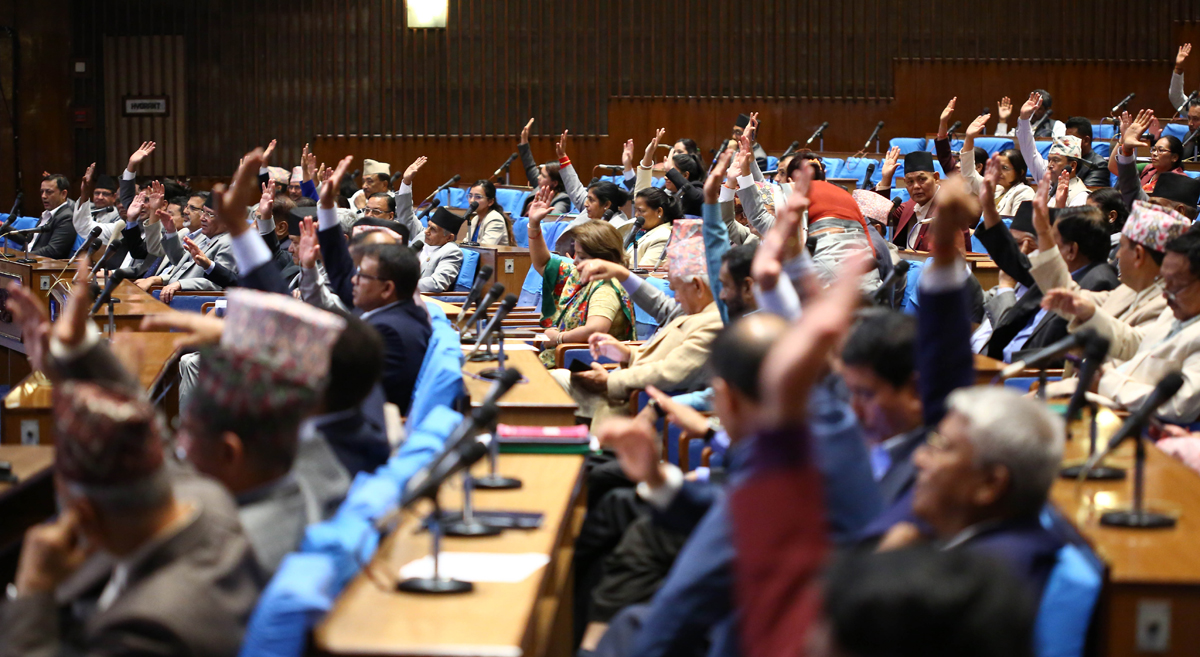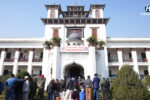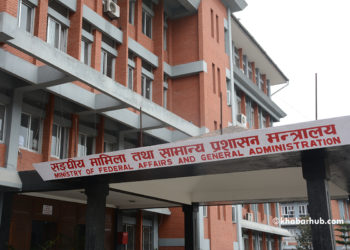KATHMANDU: The House of Representatives unanimously passed the Transitional Justice (TRC) Bill last week.
It also received approval from the National Assembly (NA) on Sunday. One authenticated by President Ram Chandra Paudel, it will become formal law, paving the way for the establishment of the Commission.
The ruling Nepali Congress and CPN-UML, along with the opposition Maoist Center, have expressed strong enthusiasm following the bill’s passage, celebrating it as a significant milestone in the peace process.
The peace process, which began after the Maoists ended a decade-long armed conflict and entered mainstream politics, has been ongoing for 18 years and is still in progress.
The international community has responded positively to the Bill’s passage, a marked shift from previous criticisms that it was not sufficiently victim-friendly.
Political disputes between the ruling Nepali Congress-UML and opposition Maoists had previously stalled the TRC Bill in Parliament.
However, after extensive negotiations, the Commission for Investigation, Truth and Reconciliation (Third Amendment) Bill, 2081 of Disappeared Persons was unanimously approved by the House of Representatives.
The transitional justice law will come into effect following the President’s approval, and the Disappeared Persons Investigation Commission and the Truth and Reconciliation Commission will be established.
Incomplete Achievement
Despite the TRC Bill becoming law, this alone does not signify complete success.
The government faces significant challenges in forming the commissions and addressing the remaining tasks of the peace process.
The Rastriya Swatantra Party (RSP), the fourth-largest party in Parliament, has cautioned major parties against allowing political divisions to influence the formation of the Commission.
During a parliamentary discussion on the TRC Bill, RSP Chairman Rabi Lamichhane emphasized that creating a commission based on political interests would fail to ensure justice for victims.
He advocated for an independent and impartial commission and suggested that including victims in the commission would be beneficial.
“The law was enacted to address transitional justice issues, but a law alone does not guarantee justice. The effectiveness of the commission depends on its structure and the intentions of those within it,” Lamichhane stated.
“If the commission is formed with political biases, it will not deliver justice. I urge that the commission be truly independent and impartial, not just in name but in practice.”
Senior advocate Leela Udasi, a former member of the Truth and Reconciliation Commission, echoed these concerns.
Udasi warned that if political interests dominate the formation of the commission, its effectiveness could be compromised.
“Commission members need to be knowledgeable about legal concepts and transitional justice,” Udasi explained.
“Past issues arose when selection committees, influenced by political parties, made recommendations. The commission’s performance suffers when political influence is involved.”
According to Ganesh Dutta Bhatta, former Chairman of the Truth and Reconciliation Commission, around 64,000 complaints have been filed with the Commission.
Of these, 3,700 complaints have been resolved after preliminary investigations.
The Commission has resolved 2,200 out of 3,000 ongoing complaints and has issued identity cards to 600 conflict victims, with 538 people recommended for government compensation.
The Commission for Investigation of Disappeared Persons has received 3,288 complaints, of which 754 have been resolved, leaving 2,534 pending.
The Commission faces the challenge of distinguishing serious human rights violations from less severe cases, determining appropriate punishments, and facilitating victim compensation.
Udasi highlighted the difficulty in addressing these issues, particularly concerning adequate compensation for victims with physical injuries.









Comment